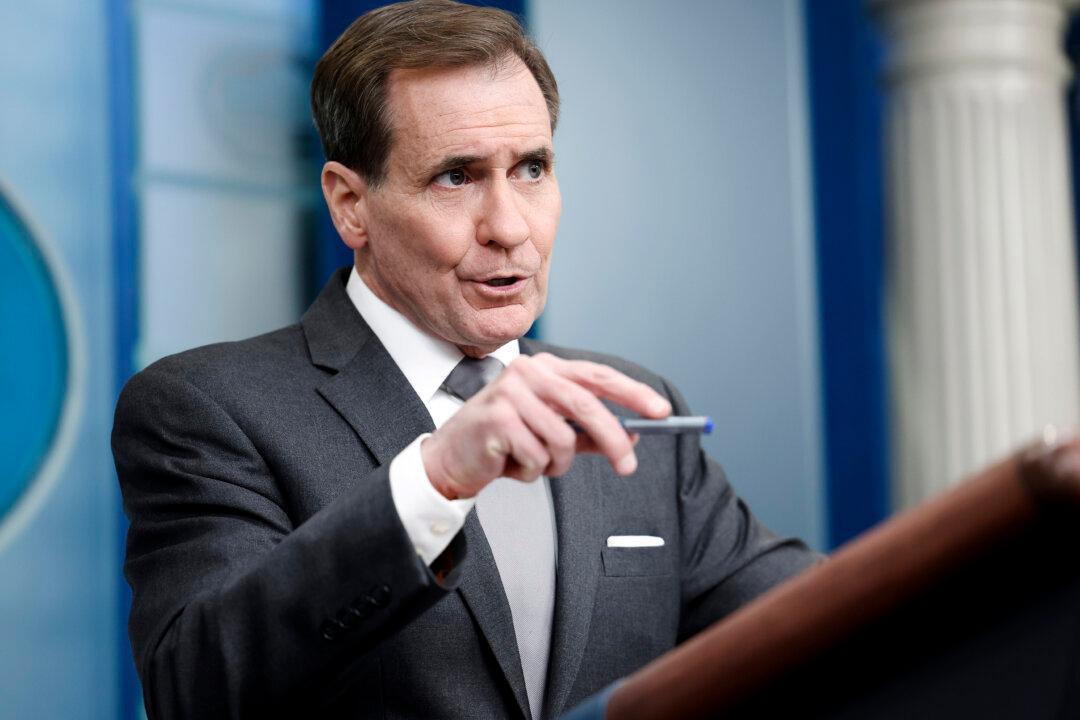China isn’t an impartial actor “in any way” in the Russia–Ukraine conflict, National Security Council spokesperson John Kirby told reporters on March 21.
“I don’t think you can reasonably look at China as impartial in any way,” he told reporters after Russian President Vladimir Putin endorsed Beijing’s proposal for a ceasefire in Ukraine during a summit with Chinese leader Xi Jinping in the Kremlin.





